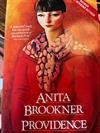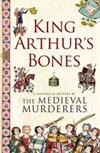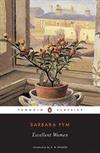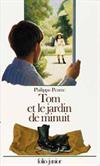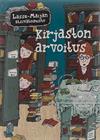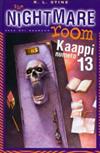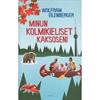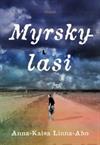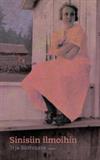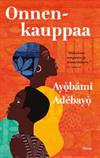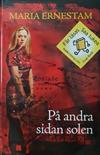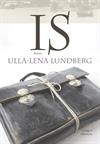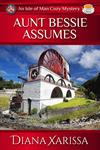
The Year of the Hare: America in Vietnam, January 25, 1963-February 15, 1964
1 journaler for this copy...
Received from Secret Santa.
I am over half way reading this book
My first criticism is the title. Why "Year of the Hare"? The explanation given by the author is that it is the name that "South East Asian people" gave to 1963. Which South East Asian people? He can't mean Cambodians, Thai, the muslims of Malaysia, Indonesia and Thailand, nor the Christians of the Philipines. They all have their own calendars. He means ethnic Chinese. So why name the book after the Chinese year? The Chinese are, after all, Vietnam's oldest enemy. As my Vietnamese wife says, it's the Chinese who have silly animals like hares in their horoscope. Presumably the choice of the title is because the author simply doesn't know that it was the Vietnamese Year of the Cat. I feel this superficial knowledge of South East Asia and Vietnam, revealed in the title, sets the scene for this book.
It's a rather meandering book. It claims to be an analysis of 1963, but it is not structured well enought to come to any conclusions.
His idea, skirted around but not really explored is that Diem not only was the best leader for South Vietnam, he could have saved Vietnam by a treaty with Ho Chi Minh. I surprised that the author doesn't express any suspicion of Ho's motives. There is not even the suggestion the Ho may have hoped to isolate Diem from American and other foreign assistance before overwhelming the South. I hate to find myself more dubious of North Vietnam's motives than an American.
But the author's main priority seems to have been finding a way that the US could have extracted itself from Vietnam, something that would have been commendable.
There are many contradictions in this book, American politicians who are said to be of such high ethical and moral character that they favoured a coup against their ally.
While I don't agree with many of the author's interpretations and conclusions, I assume he got most of his facts right as he has the sources and references. I can only spot one definite error and that is his rare literary reference. The Quiet American is set in 1954 French colonial Vietnam and features action in both the North and South of the country, not 1955 post-colonial South Vietnam as claimed by the author. It is only a years difference, but the French colonial rule is a key theme in the book. But to give the author his due, he has picked up on one of Graham Greene's main messages, often ignored, which is that it is the innocence of Pyle, the quiet American of the title, that makes him so dangerous and leads him to be responsible for the deaths of many people without contradicting his own high moral code.
This seems to be the author's judgement on many of the American politicians involved in the Vietnam war, but while Graham Greene wanted to us to be angry at the suffering caused by these so-called morally motivated politicians, the author seems to accept their well-intentioned motives as an excuse for the consequences.
My first criticism is the title. Why "Year of the Hare"? The explanation given by the author is that it is the name that "South East Asian people" gave to 1963. Which South East Asian people? He can't mean Cambodians, Thai, the muslims of Malaysia, Indonesia and Thailand, nor the Christians of the Philipines. They all have their own calendars. He means ethnic Chinese. So why name the book after the Chinese year? The Chinese are, after all, Vietnam's oldest enemy. As my Vietnamese wife says, it's the Chinese who have silly animals like hares in their horoscope. Presumably the choice of the title is because the author simply doesn't know that it was the Vietnamese Year of the Cat. I feel this superficial knowledge of South East Asia and Vietnam, revealed in the title, sets the scene for this book.
It's a rather meandering book. It claims to be an analysis of 1963, but it is not structured well enought to come to any conclusions.
His idea, skirted around but not really explored is that Diem not only was the best leader for South Vietnam, he could have saved Vietnam by a treaty with Ho Chi Minh. I surprised that the author doesn't express any suspicion of Ho's motives. There is not even the suggestion the Ho may have hoped to isolate Diem from American and other foreign assistance before overwhelming the South. I hate to find myself more dubious of North Vietnam's motives than an American.
But the author's main priority seems to have been finding a way that the US could have extracted itself from Vietnam, something that would have been commendable.
There are many contradictions in this book, American politicians who are said to be of such high ethical and moral character that they favoured a coup against their ally.
While I don't agree with many of the author's interpretations and conclusions, I assume he got most of his facts right as he has the sources and references. I can only spot one definite error and that is his rare literary reference. The Quiet American is set in 1954 French colonial Vietnam and features action in both the North and South of the country, not 1955 post-colonial South Vietnam as claimed by the author. It is only a years difference, but the French colonial rule is a key theme in the book. But to give the author his due, he has picked up on one of Graham Greene's main messages, often ignored, which is that it is the innocence of Pyle, the quiet American of the title, that makes him so dangerous and leads him to be responsible for the deaths of many people without contradicting his own high moral code.
This seems to be the author's judgement on many of the American politicians involved in the Vietnam war, but while Graham Greene wanted to us to be angry at the suffering caused by these so-called morally motivated politicians, the author seems to accept their well-intentioned motives as an excuse for the consequences.
I have finished the book now.
There is a final chapter, Lessons of the Year of the Hare, which implies it will draw conclusions. Instead it starts wandering through the annals of US history and quotes from the poet Robert Frost. I learnt one interesting item: Jefferson, writer of the American Constitution, believed that each generation should have it's own constitution.
This is where the author offers some insight into the US mis-comprehension of the world, in 1963 and today. The US believes itself to be blessed with the ideal system enshrined in a near sacrosanct document, the Constitution. There is a general belief in the US, that the introduction of US style democracy to the rest of the world will achieve world peace. As the author points out, the US Constitution was a product of place and time. It is not a one solution fits all times and all places. This faith in Democracy and the Constitution is an attitude I have come across on occasion. It leads to a tendency for even highly intelligent US citizens to have supreme confidence in US intervention in other nations and make them bewildered and annoyed by criticism. Perhaps if they new more of Jefferson and the compromises required to bring together the Constitution, they might have a more reasoned outlook.
I must admit that the book did raise challenges to my outlook. One of my most frequent criticisms of US policy has been its willingness to ally with authoritarian leaders, without pushing them towards reform. The Year of the hare makes a good case that a major mistake made by the US in Vietnam was its heavy interference in South VN politics. The US set up a parallel superstructure to try and ensure funds got to the intended recipients. However altruistic this might have been, it was an anathema to nationalists of all political colours. (Fascinating as this is, the book doesn't go deeply into. There is no discussion of to what extent the communists and their supporters had infiltrated either structure.)
In brief, the conclusion of the book is that JFK chose to intervene in Vietnam for pragmatic reasons. He had to demonstrate to the Eastern Bloc that he was strong and would oppose Communist encroachment, but Europe was becoming too dangerous. If the USSR and called his bluff, the author believes that JFK would not have been prepared to destroy the world by resorting to nuclear weapons, which was the West's main defence. He needed a symbolic battlefield to shift the focus of the struggle. The author also believes that JFK intended to get forces out by 1965 and would have done so if not for his untimely death. Unfortunately his successors were unaware of these calculations and felt the need to live up to JFK's rhetoric.
The author believes that the best hope for Vietnam was South VN President Diem, who JFK overthrew. Diem was making overtures to Ho Chi Minh and they might have come to an agreement on a partitioned VN in return for foreign forces withdrawing from VN.
The author is probably correct as far as providing an excuse for the US to withdraw, but there is no consideration as to whether Diem or Ho would have lived up to the agreement, would the superpowers really have withdrawn and what would SE Asia be like to day if this had happened.
My opinion is that is a long meandering book, focusing almost entirely on the US machinations and lacking insight into the Vietnamese of all political colours.
There is a final chapter, Lessons of the Year of the Hare, which implies it will draw conclusions. Instead it starts wandering through the annals of US history and quotes from the poet Robert Frost. I learnt one interesting item: Jefferson, writer of the American Constitution, believed that each generation should have it's own constitution.
This is where the author offers some insight into the US mis-comprehension of the world, in 1963 and today. The US believes itself to be blessed with the ideal system enshrined in a near sacrosanct document, the Constitution. There is a general belief in the US, that the introduction of US style democracy to the rest of the world will achieve world peace. As the author points out, the US Constitution was a product of place and time. It is not a one solution fits all times and all places. This faith in Democracy and the Constitution is an attitude I have come across on occasion. It leads to a tendency for even highly intelligent US citizens to have supreme confidence in US intervention in other nations and make them bewildered and annoyed by criticism. Perhaps if they new more of Jefferson and the compromises required to bring together the Constitution, they might have a more reasoned outlook.
I must admit that the book did raise challenges to my outlook. One of my most frequent criticisms of US policy has been its willingness to ally with authoritarian leaders, without pushing them towards reform. The Year of the hare makes a good case that a major mistake made by the US in Vietnam was its heavy interference in South VN politics. The US set up a parallel superstructure to try and ensure funds got to the intended recipients. However altruistic this might have been, it was an anathema to nationalists of all political colours. (Fascinating as this is, the book doesn't go deeply into. There is no discussion of to what extent the communists and their supporters had infiltrated either structure.)
In brief, the conclusion of the book is that JFK chose to intervene in Vietnam for pragmatic reasons. He had to demonstrate to the Eastern Bloc that he was strong and would oppose Communist encroachment, but Europe was becoming too dangerous. If the USSR and called his bluff, the author believes that JFK would not have been prepared to destroy the world by resorting to nuclear weapons, which was the West's main defence. He needed a symbolic battlefield to shift the focus of the struggle. The author also believes that JFK intended to get forces out by 1965 and would have done so if not for his untimely death. Unfortunately his successors were unaware of these calculations and felt the need to live up to JFK's rhetoric.
The author believes that the best hope for Vietnam was South VN President Diem, who JFK overthrew. Diem was making overtures to Ho Chi Minh and they might have come to an agreement on a partitioned VN in return for foreign forces withdrawing from VN.
The author is probably correct as far as providing an excuse for the US to withdraw, but there is no consideration as to whether Diem or Ho would have lived up to the agreement, would the superpowers really have withdrawn and what would SE Asia be like to day if this had happened.
My opinion is that is a long meandering book, focusing almost entirely on the US machinations and lacking insight into the Vietnamese of all political colours.
